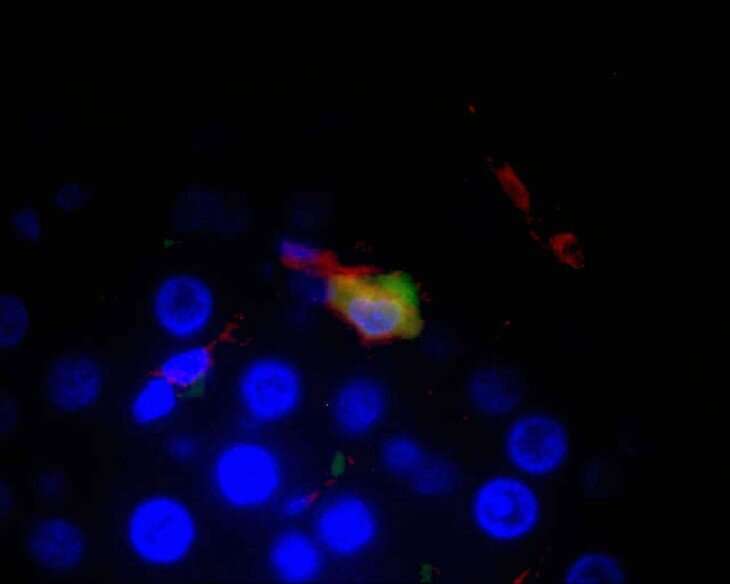Decreasing liver macrophages reduces inflammatory proteins in rats

Certain white blood cells, called macrophages, occur in higher numbers in older individuals and contribute to inflammation and oxidative stress that accelerate the aging process, according to a team of researchers. New findings suggest that macrophages can be altered to become less inflammatory, which may aid in improving the life span of aged individuals.
"Previous research has shown that liver macrophages occur in pro-inflammatory and anti-inflammatory states, or phenoytpes, and that pro-inflammatory phenotypes occur in greater numbers in older animals," said Steven Bloomer, associate professor of biology, Penn State Abington. "Additionally, pro-inflammatory macrophages are known to contribute to oxidative stress."
Oxidative stress, he explained, which can lead to cancer, among other health problems, occurs when free radicals outnumber antioxidants to the point that they cause damage to tissues, proteins and DNA.
For their study, the team—which included Eric Moyer, a medical student in the Penn State College of Medicine who participated in the research as an undergraduate student—used a chemical, called gadolinium chloride, to decrease the number of macrophages in the livers of aged rats. They then measured markers of oxidative stress and cellular injury.
Using another set of markers, the researchers compared the numbers of inflammatory and anti-inflammatory macrophages in young and old rats, both with and without gadolinium chloride treatment. They labeled the macrophages with fluorescent markers so they could count their numbers under a microscope. Their findings appeared on Nov. 6, 2019, in Histochemistry and Cell Biology.
"To our knowledge, our investigation was the first to deplete liver macrophages in a model of mammalian aging," said Bloomer. "Unexpectedly, we found that decreasing the number of macrophages with gadolinium chloride did not directly affect oxidative stress in either young or old rats. However, we did find that gadolinium chloride decreased a particular inflammatory protein, called iNOS, within macrophages to a very high degree. We also observed that in aged rats, the macrophages that remained after gadolinium treatment tended to be characterized as anti-inflammatory, which is a completely novel observation."
Moyer explained that gadolinium chloride is typically used as a contrast agent in medical studies, although the team was able to use it as a tool to decrease macrophages. The use of the chemical in humans for this purpose has not yet been evaluated, he said. Importantly, however, the study provides a proof of concept that the phenotype of macrophages can be altered.
"More research is needed to determine if modifying macrophage phenotype to a more anti-inflammatory state where they are implicated in liver and other age-related diseases could be helpful in improving the health span of aged individuals," said Moyer.
More information: Steven A. Bloomer et al. Aging results in accumulation of M1 and M2 hepatic macrophages and a differential response to gadolinium chloride, Histochemistry and Cell Biology (2019). DOI: 10.1007/s00418-019-01827-y


















